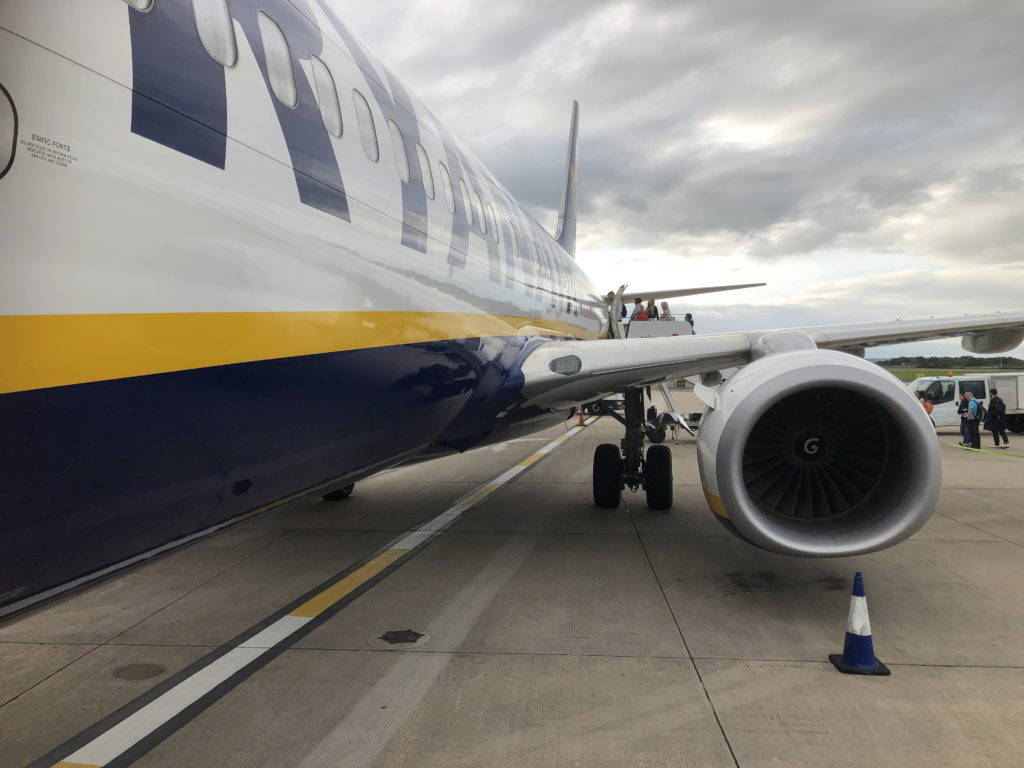
What rights do customers have when they get delayed on the train or plane? https://www.schengenvisainfo.com/travel-guide/flight-delay-compensation/
Original post August 2015:
Ryanair lost a test case over flight delays, in Manchester County Court which could have implications for flight delay compensation claims.
The Court ruled that Ryanair could not cut the time a passenger has in which to claim from six years to two by adding a clause in its terms.
Ryanair said the six-year rule was “unnecessary and unreasonable” and that it would appeal against the decision.
One must say that it is difficult to understand why any passenger would wait 6 years before bringing a claim, but that is the law! Ryanair said that more than 90% of passengers affected by delays make a valid claim within two years so very few would need to submit one between two and six years after the event. It appears to be a matter of principle as airlines are not happy about having to pay out for delays which they argue are outside their control.
With train travel, train operators generally pay compensation after 1 hour delay, but traditionally have issued vouchers which expire after 12 months. This has recently changed and rail passengers who suffer travel delays can now claim refunds in cash instead of vouchers as new compensation arrangements come into effect.
The changes have been made after consumer groups criticised the vouchers, saying they could not be used online or to access cheap fares. Passengers will be entitled to refunds if their train is delayed by at least 30 minutes.
For delayed flights, passengers can claim between £180 and £440 for a delay of at least three hours, depending on the length of the wait and the distance to be travelled.
Compensation for delayed flights is dependant on the reason for the delay. If the airline can prove the delay was caused by ‘extraordinary circumstances’, then no compensation is payable.
What constitutes “extraordinary circumstances” is often subject to debate, but includes situations which are beyond the control of the airline.
UPDATE: November 2019
The Supreme Court is to consider a ruling allowing Ryanair to compensate passengers directly for flight delays and bypass their solicitors. Permission was granted earlier this month for an appeal in Bott & Co Solicitors Ltd v Ryanair DAC, as the case raises an arguable point of law of general public importance.
The appeal will examine in what circumstances solicitors have the benefit of an equitable lien for payment of their costs out of any settlement monies received.
North-west firm Bott & Co received around £100,000 a month from flight delay claims against Ryanair at the time of the Court of Appeal judgment, which found in favour of the airline. But the case could also have wider implications for all firms running claims against a compensator who then chooses to deal directly with clients.
A Bott & Co spokesman said solicitors benefit from the security of an equitable lien as it permits them the right to withhold monies obtained from successful litigation, where that client has not yet paid the agreed charges.
Ryanair changed its terms and conditions in 2016 to require passengers seeking compensation for delays to deal directly with the airline and to allow 28 days to respond before instructing a third party.
In his February CoA ruling, Lord Justice Lewison acknowledged that Ryanair paying Bott’s clients directly would threaten the viability of the firm’s business model.
RyanAir are always trying to use their terms and conditions to restrict flight delay claims and one can see that lawyers should not be necessary in such cases.
Recently RyanAir also stopped using Aviation ADR for flight delay claims and now the ADR will be provided by the CAA.
The CAA issued a statement about this in December 2018:
Civil Aviation Authority Statement – 5th December 2018
The UK Civil Aviation Authority has today started enforcement action against Ryanair, following the airline’s decision that financial compensation is not payable under European Commission Regulation 261/2004 for flight disruption resulting from industrial action by the airline’s staff this summer.
Ryanair passengers have made claims for compensation directly to the airline, but these have been rejected. Passengers have then been able to escalate their complaints to AviationADR, a body approved by the Civil Aviation Authority, to provide alternative dispute resolution for passenger complaints.
Ryanair has now informed the Civil Aviation Authority that it has terminated its agreement with AviationADR. As the Civil Aviation Authority said at the time of the industrial action, in its view, the strikes were not “extraordinary circumstances” and were not exempt, meaning consumers should be compensated in accordance with Regulation EC261/2004.
As a result of Ryanair’s action, passengers with an existing claim will now have to await the outcome of the Civil Aviation Authority’s enforcement action.
Passengers with outstanding strike-related compensation claims
Passengers who have made strike-related compensation claims via AviationADR are advised that these claims are currently on hold and will have to await the outcome of the Civil Aviation Authority’s enforcement action.
Passengers with new claims:
Passengers with new claims who are not satisfied with the outcome or who have not received a reply from the airline within eight weeks, should contact the Civil Aviation Authority’s Passenger Advice and Complaints Team (PACT): https://www.caa.co.uk/Passengers/Resolving-travel-problems/How-the-CAA-can-help/How-the-CAA-can-help/
Disclaimer: The information and any commentary on the law contained in this article is for information purposes only. No responsibility for the accuracy and correctness of the information and commentary or for any consequences of relying on it, is assumed by the author. The information and commentary does not, and is not intended to amount to legal advice to any person on a specific case or matter. The article was written on the date shown and may not represent the law as it stands subsequently. For the avoidance of doubt, the views in this article are personal to the author and not attributable to any other individual or organisation.[/button

